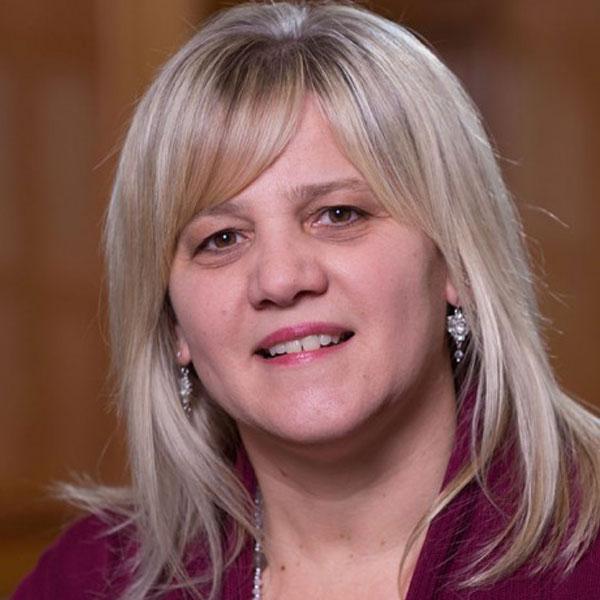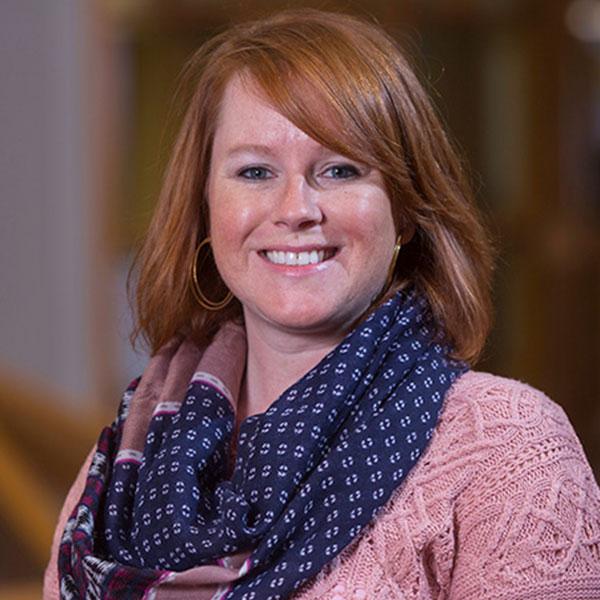The PhD in Applied Behavior Analysis (ABA) with Specialization in Autism Intervention prepares students to serve in leadership positions in private companies and public entities that provide behavior services to a wide range of populations. It's especially important work since, in 2020, the Centers for Disease Control and Prevention (CDC) determined that approximately 1 in 36 children has been identified with autism spectrum disorder.
Modality

Applications are closed for Summer 2026.
The Cambridge College program was ranked as the No. 2 Applied Behavior Analysis PhD program in the United States by ABA Degree Programs in 2021.
PhD in Applied Behavior Analysis with Specialization in Autism Intervention Overview
Designed for working professionals, the PhD in Applied Behavior Analysis with Specialization in Autism Intervention offers clinical leadership training that prepares students for leadership roles within human service organizations and within the field of applied behavior analysis. Coursework ensures that students develop the supervisory and management skills necessary to succeed in high-level leadership positions.
The program also focuses on advanced research and dissemination of applied behavior analysis. Coursework is designed to further develop students’ clinical skills and enhance their ability to conduct, evaluate, analyze and apply research findings in their clinical settings.
The ABA doctoral program is a three-year, 48-credit course of study that includes one-week summer residencies in Boston during the first two years. The program follows a distance-learning model during all other semesters. An applied dissertation is also required.
Highlights of the Cambridge College PhD in ABA Program
- Convenience: Program can be completed in 3 years using a distance learning model (via Zoom) combined with week-long residencies at our Boston campus in years 1 and 2. Dissertation research can be completed at any location.
- Flexible, hybrid course options: Designed to meet the needs of working adults, the PhD program is offered via convenient evening classes. Courses are taught in a mix of remote, live classes to promote discussion and build rapport with your cohort, as well as online classes to support study from any location and two week-long, on-campus residencies.
- No GRE required: Start your PhD degree quickly. Cambridge College offers an easy application process and does not require GRE exams for admission to the PhD program.
- Faculty with real-world expertise: PhD Faculty has extensive clinical and administrative experience and bring it into the classroom.
- Cost-effective: Cambridge College is committed to keeping tuition low and to providing an excellent value for the quality of education you receive.
Learn more about the PhD in Applied Behavior Analysis with Specialization in Autism Intervention.
Watch our recorded information session to explore program details, career paths, and the student experience.
“I would recommend the PhD program at Cambridge College because the faculty have student success in mind.”
Learning Outcomes
In the ABA Doctoral Program at Cambridge College, students will:
- Analyze published research across a range of behavior analytic content, including evaluating the experimental methods used and interpreting the results
- Synthesize published research in a particular topic and consider gaps in the research to develop research questions for their applied work and to articulate the impacts of these gaps on service delivery
- Formulate systematic research studies using valid experimental designs to enable them to qualify for full membership in the Association for Behavior Analysis International (ABAI) and to present findings at regional and national applied behavior analysis conferences
- Develop experimental methods to address the research question in their applied dissertations
- Evaluate published research addressing skill development and behavior reduction procedures for individuals with autism spectrum disorders and synthesize that research to create a taxonomy of empirically supported treatment procedures
- Create assessment procedures for evaluating treatments, conduct assessments, analyze the outcomes of those assessments, and synthesize the results of assessments to develop function-based treatment plans and instructional programs
- Propose and adapt empirically supported staff-training models and systems
- Design and conduct trainings in advanced ABA content across a range of audiences (students, parents, stakeholders, etc.)
- Upon graduation, eligible graduates may seek the BCBA-D designation from the Behavior Analyst Certification Board.
PhD Tuition Information
*See curriculum sheet for a breakdown of credits and credit ranges.
PhD Course List
Students enroll in five to nine total credits per (fall and spring) term during the first two years of the Applied Behavior Analysis degree program. During the third year, students enroll in the Dissertation Research course. In all subsequent semesters and until completion of all degree requirements, students enroll in a Dissertation Continuation course. Additional courses in the program include:
- Advanced Single Subject Research Designs in ABA
- Communication and Dissemination of Advanced Principles of Behavior
- Early Intensive Behavioral Intervention (EIBI)
- Evaluation and Treatment of Severe Behavior Disorders
- Behavior Analytic Perspective on Child Development
- Organizational Behavior Management
Careers in Applied Behavior Analysis with Specialization in Autism Intervention
Annual nationwide demand for individuals holding BCBA/BCBA-D certification has increased each year since 2010, with a 23% increase from 2021 to 2022
According to Glassdoor.com, the average salary in 2023 for BCBA-D's is $110,371.
$85,330
Median annual salary for BCBA-D's*
$141,910
Annual salary of top 10% of psychologists**
*Behavior Analyst Certification Board. (2023). US employment demand for behavior analysts: 2010–2022. Littleton, CO: Author. (visited Dec. 20, 2023).
** www.glassdoor.com (visited Dec. 20, 2023).
Jobs for Those With a PhD in Applied Behavior Analysis
Psychologists have a range of job options to choose from. They may work independently, conducting research, consulting with clients, or working with patients. They can find roles on health care teams, collaborating with physicians and social workers, or in school settings, working with students, teachers, parents, and other educators. Many choose to work in private practice.
Faculty Spotlight

Susan Ainsleigh
EdD, BCBA-D®, LABA
Director of Graduate Program in Applied Behavior Analysis; Associate Professor, Education
Program Director of the ABA Program, Dr. Susan Ainsleigh, is a Board Certified Behavior Analyst (BCBA-D®) and a licensed special education teacher. Dr. Ainsleigh has practiced ABA in a wide range of settings, including public and private schools, early intervention programs, and adult service settings, for over 20 years. She has extensive experience establishing ABA programs in higher education settings, including the first BACB® approved course sequence in the middle east.

Daniel A. Almeida
PhD, BCBA-D, LABA-MA, LBA-CT
Program Director, Autism/Applied Behavior Analysis Programs
Daniel Almeida is the Program Director for the Ph.D. in ABA program at Cambridge College. Previously, he was the District Supervisor of ABA Services for a major public school district in Greater Boston and held a variety of director-level positions at private, ABA-based schools is Massachusetts. He received his Ph.D. in ABA from Simmons University. Dan has provided ABA services to students with Autism Spectrum Disorders and related disabilities for over 35 years. He has published original...

Laurie Bonavita
PhD, BCBA-D®️, LABA
Supervisor and Clinical Instructor
Dr. Bonavita began working with individuals diagnosed with Autism Spectrum Disorder close to 30 years ago, and her love of the science of applied behavior analysis (ABA) began soon after. She received her doctorate in ABA from The Chicago School of Professional Psychology, and her passion for research grew at that time. She has completed research in the areas of health, sport and fitness, and diversity in supervision and functional analysis.

Melissa Hunsinger-Harris
PhD, BCBA-D®️, LABA, LBA
Assistant Director, Applied Behavior Analysis; Associate Professor, Special Education and Applied Behavior Analysis
Melissa L. Hunsinger-Harris, PhD, LBA BCBA-D® (she/her) is the Assistant Director of Graduate Studies in Applied Behavior Analysis (ABA) at Bay Path University. Since 2012, she has been instrumental in supervising, teaching, and developing master’s level coursework for graduate students. Dr. Hunsinger-Harris earned her master’s degree in ABA from Simmons College in Boston, where she focused her research and professional efforts on enhancing staff training...
